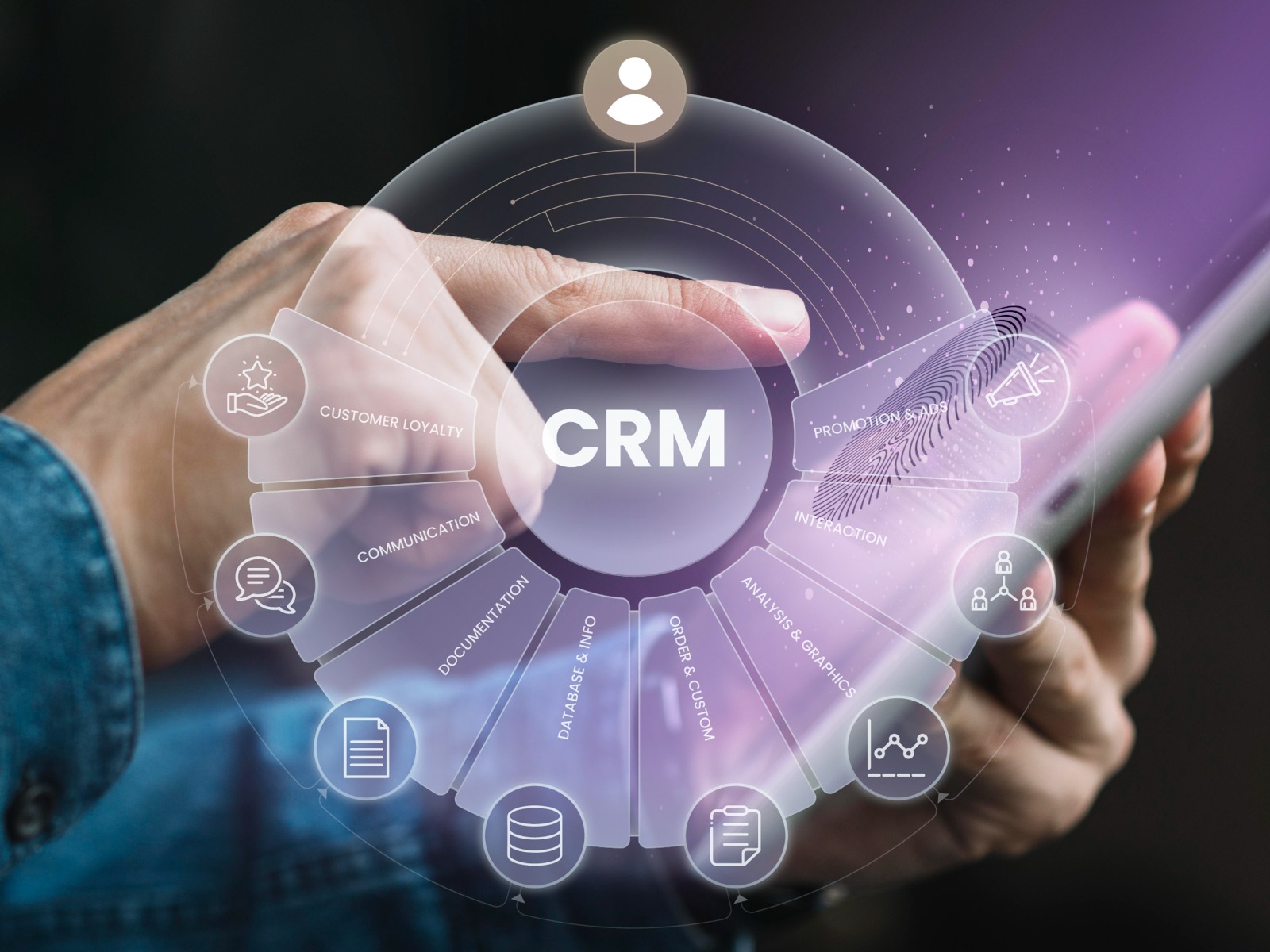power of SSO for CRM system
Date Created: 27 Oct 2023Share:
Customer Relationship Management (CRM) systems serve as the backbone of contemporary businesses, facilitating the establishment and nurturing of invaluable customer relationships.

The Power of Single Sign-On (SSO) for CRM Systems
Customer
Relationship Management (CRM) systems serve as the backbone of contemporary
businesses, facilitating the establishment and nurturing of invaluable customer
relationships. Nevertheless, the array of applications and tools intertwined
with CRM can result in user weariness, diminished productivity, and
apprehensions regarding security. It is in such instances that Single Sign-On
(SSO) emerges as a savior. In this comprehensive blog, we will delve into the
merits, implementation procedures, and real-world advantages of SSO when
integrated with CRM systems. Regardless of whether your organization is a small
business or a corporate giant, the adoption of SSO can streamline user
accessibility, fortify security, and propel efficiency within your CRM operations.
Understanding
the Complexity of CRM Systems
The
Evolution of CRM Systems
CRM systems have evolved significantly, from basic contact management tools to comprehensive platforms for managing customer interactions. These systems encompass sales, marketing, customer service, and analytics. The growth of CRM has brought numerous applications and tools into the mix, making it a critical component of business operations.
The
Challenge of Managing Multiple CRM Applications
Managing multiple CRM applications can be a daunting task for both businesses and users. Users often find themselves juggling multiple logins, leading to user fatigue and decreased productivity. Additionally, security concerns arise when organizations struggle to maintain uniform security standards across multiple applications.
The Impact of Single Sign-On on CRM
Comprehending Single Sign-On (SSO)
The Advantages of SSO for CRM Systems
Integrating
SSO into CRM systems offers a spectrum of compelling benefits:
Augmented Efficiency: SSO streamlines the login process, conserving users time
and mitigating the complexities of managing multiple sets of login credentials.
Heightened Security: SSO centralizes user authentication and management,
granting organizations the ability to enforce more robust password policies,
implement multi-factor authentication, and promptly revoke access when
required.
A Seamless User Experience: CRM professionals and employees relish a smooth
experience, effortlessly navigating between diverse CRM applications without
the need for recurring logins.
Diminished Administrative Burden: Organizations can markedly reduce
the workload on their IT and CRM departments by eliminating password reset
requests and simplifying account management procedures.
Harmonizing User Convenience with Data Security
SSO adeptly strikes a pivotal balance between user convenience and the fundamental necessity for data security. By providing users with a straightforward method of accessing CRM applications while upholding a robust security framework, organizations can offer a user-friendly experience without compromising the safeguarding of sensitive customer data.
Implementing SSO for Your CRM System
Steps to Set Up SSO for CRM
The
implementation of SSO for CRM systems involves several key steps:
Select an SSO Solution: Choose an SSO provider that offers compatibility with your
CRM applications and fulfills your organizations security requirements.
Integration: Integrate the chosen SSO solution with your CRM
applications. Ensure that it supports the relevant protocols (e.g., SAML,
OAuth) used by your CRM system.
User Mapping: Define user attributes and permissions within the SSO
solution, mapping them to your CRM applications user profiles.
Testing and Validation: Thoroughly test the SSO implementation to ensure that users
can seamlessly access CRM applications with a single login.
Choosing the Right SSO Provider
Selecting the right SSO provider is crucial to the success of your implementation. Consider factors such as compatibility with your CRM applications, support for industry-standard protocols, ease of integration, and the providers track record in data security and customer support.
Real-World Benefits of SSO for CRM
Enhanced User Productivity
By
simplifying access to CRM applications, SSO significantly enhances user
productivity. Users can focus on their tasks without the frustration of
managing multiple logins, resulting in improved efficiency and a more positive
user experience.
Heightened Security
SSO
centralizes user authentication, enabling organizations to enforce robust
security measures. Stronger password policies, multi-factor authentication, and
the ability to revoke access instantly contribute to heightened data security.
Reduced Administrative Overhead
One
of the significant advantages of SSO is the reduction in administrative
workload. IT and CRM departments can spend less time on password resets and
account management, allowing them to focus on strategic tasks that benefit the
organization.
Improved User Experience
A seamless user experience is one of the core benefits of SSO. Users can navigate between CRM applications without the hassle of repeated logins, leading to a more satisfying interaction with CRM systems.
Case Study: Success Stories with SSO for CRM
Examining the Impact of SSO on CRM Operations
In
this section, we will delve into real-world case studies, showcasing
organizations that have successfully implemented SSO for their CRM systems. We
will explore the challenges they faced, the benefits they reaped, and the
lessons learned in the process.
Lessons from Companies that Embrace SSO
By analyzing the experiences of organizations that have embraced SSO for their CRM systems, we can gain valuable insights into best practices, common challenges, and the transformative impact of SSO on CRM operations.
In
conclusion, Single Sign-On (SSO) for Customer Relationship Management (CRM)
systems represents a significant leap in user experience and data security for
organizations. By streamlining access, reducing administrative overhead, and
enhancing security, SSO empowers businesses to efficiently manage their
customer interactions. Moreover, real-world success stories demonstrate the
tangible benefits of SSO for CRM, from improved productivity to heightened
security.
As
the digital landscape continues to evolve, SSO stands as a fundamental tool for
simplifying user access while upholding data security, ensuring a bright future
for streamlined Customer Relationship Management. For those seeking a reliable
SSO solution, Cripsas expertise in SSO SAML 2.0 services for B2B SaaS
companies and enterprises provides an excellent option. By embracing SSO with
Cripsa, you can supercharge your CRM operations, enhance data security, and provide
a seamless user experience for both your customers and your team.

